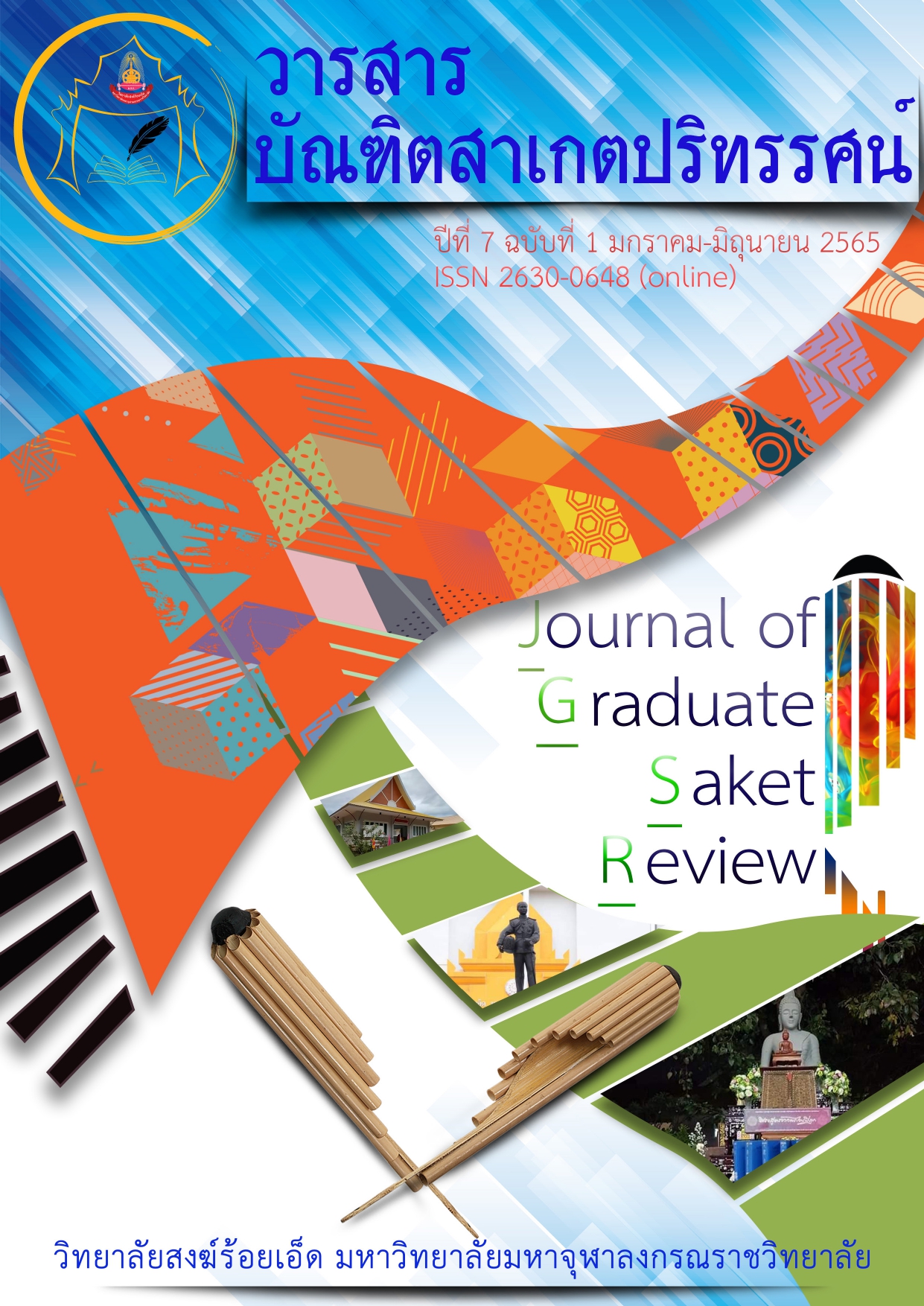การมีส่วนร่วมทางการเมืองของคนรุ่นใหม่
Main Article Content
บทคัดย่อ
บทความนี้ มีวัตถุประสงค์เพื่อศึกษาการมีส่วนร่วมทางการเมืองของคนรุ่นใหม่ ซึ่งพบว่า การมีส่วนร่วมทางการเมืองของคนรุ่นใหม่ เกิดจากการเปลี่ยนผ่านจากภาวะพึ่งพิงไปสู่การเป็นอิสระทำให้กรอบคิดในเรื่องการพัฒนาคนรุ่นใหม่ยืดหยุ่นมากขึ้น ดังนั้น การมีส่วนร่วมทางการเมืองจึงเป็นหนึ่งในตัวเร่งสำคัญความอิสระของคนรุ่นใหม่ กล่าวคือ การมีส่วนร่วมทางการเมืองจะส่งเสริมให้คนรุ่นใหม่เป็นอิสระและเป็นตัวของตัวเองเร็วขึ้น การมีส่วนร่วมทางการเมืองเป็นสิทธิ์พื้นฐานของคนรุ่นใหม่อยู่แล้ว คนรุ่นใหม่จึงสามารถใช้สิทธิ์นี้ได้อย่างเต็มที่ การมีส่วนร่วมทางการเมืองของคนรุ่นใหม่จะทำให้ความต้องการ ผลประโยชน์ของพวกเขาถูกมองเห็นและการมีส่วนร่วมทางการเมืองของคนรุ่นใหม่จะทำให้ระบบการเมืองมีประสิทธิภาพมากขึ้น เพราะในระบอบประชาธิปไตยการมองเห็นความต้องการและผลประโยชน์ที่หลากหลายของผู้คน ย่อมทำให้ระบบการเมืองสามารถพัฒนาการผลิตนโยบายที่ตอบโจทย์สังคม ดังนั้น รัฐจึงควรมีนโยบายทางการเมืองเพื่อคนรุ่นใหม่อย่างเป็นรูปธรรม คือ รัฐจะต้องส่งเสริมการมีส่วนร่วมทางการเมืองของคนรุ่นใหม่ โดยไม่จำเป็นต้องยึดติดว่าการมีส่วนร่วมนั้นจะอยู่ในรูปแบบใด รัฐควรเปลี่ยนแนวคิดจากการเน้นการแก้ปัญหาให้กับเยาวชนมาเป็นการสร้างโอกาสให้กับเยาวชน และรัฐจำเป็นต้องลงทุนเพิ่มเติมในด้านเยาวชนศึกษา เพื่อทำความเข้าใจการเปลี่ยนผ่านจากภาวะพึ่งพิงไปสู่ความเป็นอิสระอย่างลุ่มลึกและหลากหลายมากยิ่งขึ้น
Article Details

อนุญาตภายใต้เงื่อนไข Creative Commons Attribution-NonCommercial-NoDerivatives 4.0 International License.
เนื้อหาและข้อมูลในบทความที่ลงตีพิมพ์ในวารสารบัณฑิตสาเกตปริทรรศน์ ถือเป็นข้อคิดเห็นและความรับผิดชอบของผู้เขียนบทความโดยตรงซึ่งกองบรรณาธิการวารสาร ไม่จำเป็นต้องเห็นด้วย หรือร่วมรับผิดชอบใด ๆบทความ ข้อมูล เนื้อหา รูปภาพ ฯลฯ ที่ได้รับการตีพิมพ์ในวารสารบัณฑิตสาเกตปริทรรศน์ ถือเป็นลิขสิทธิ์ของวารสารบัณฑิตสาเกตปริทรรศน์ หากบุคคลหรือหน่วยงานใดต้องการนำทั้งหมดหรือส่วนหนึ่งส่วนใดไปเผยแพร่ต่อหรือเพื่อกระทำการใด ๆ จะต้องได้รับอนุญาตเป็นลายลักอักษรจากวารสารบัณฑิตสาเกตปริทรรศน์ ก่อนเท่านั้น
เอกสารอ้างอิง
โกวิทย์ พวงงาม. (2553). ธรรมาภิบาลท้องถิ่นว่าด้วยการมีส่วนร่วมและความโปร่งใส. กรุงเทพมหานคร: มิสเตอร์ก๊อปปี้.
เฉลียว บุรีภักดี และคณะ. (2545). ชุดวิชาการวิจัยชุมชนชุดการเรียนรู้ด้วยตนเอง หลักสูตรประกาศนียบัตรบัณฑิตการจัดการและประเมินโครงการ. นนทบุรี: เอส.อาร์.พริ้นติ้ง แมสโปรดักส์.
ชินวัฒน์ สมสืบ. (2539). การมีส่วนร่วมของประชาชนในการพัฒนาชนบท. นนทบุรี:มหาวิทยาลัยสุโขทัยธรรมาธิราช.
ธัญญา ผลอนันต์. (2554). แบบฝึกหัดคิดพิชิต Mind Map สำหรับพนักงานและหัวหน้างาน. (พิมพ์ครั้งที่ 2). กรุงเทพมหานคร: Buzan Centre Thailand (BCT).
นรินทร์ชัย พัฒนพงศา. (2546). การมีส่วนร่วม: หลักการพื้นฐานเทคนิคและกรณีตัวอย่าง. (พิมพ์ครั้งที่ 2). กรุงเทพมหานคร: สิริลักษณ์การพิมพ์.
ประภาพร ศรีสถิตธรรม. (2554). การมีส่วนร่วมของคณะกรรมการชุมชนในการจัดการสิ่งแวดล้อม : ศึกษาเฉพาะชุมชนในเขตเทศบาลจังหวัดนครราชสีมา. วิทยานิพนธ์ศิลปศาสตรมหาบัณฑิต สาขารัฐศาสตร์. บัณฑิตวิทยาลัย: มหาวิทยาลัยเกษตรศาสตร์.
ประหยัด หงษ์ทองคำ. (มปป.) การพัฒนาทางการเมืองโดยกระบวนการปกครองส่วนท้องถิ่น.กรุงเทพมหานคร: ห้างหุ้นส่วนจำกัด พาพาส.
ปาริชาติ วลัยเสถียร. (2542). ทฤษฎีและหลักการพัฒนาชุมชน. กรุงเทพมหานคร: มหาวิทยาลัยธรรมศาสตร์.
มหาวิทยาลัยสุโขทัยธรรมาธิราช. (2553). การมีส่วนร่วมของประชาชนในการพัฒนาชนบท. รายงานการวิจัย. นนทบุรี: มหาวิทยาลัยสุโขทัยธรรมาธิราช.
วันชัย วัฒนศัพท์. (2543). คู่มือการมีส่วนร่วมของประชาชนในการตัดสินใจของชุมชน. กรุงเทพมหานคร: ศูนย์สันติวิธีเพื่อการพัฒนาประชาธิปไตย.
ศุภสวัสดิ์ ชัชวาล. (2545). การปกครองท้องถิ่นกับการมีส่วนร่วมของประชาชน. (พิมพ์ครั้งที่ 3).กรุงเทพมหานคร: อีพีเอปริทัศน์.
Bugnicourt, Jacques. (1982). PopularParticipation in Development in Africa. Geneva: Assignment Children.
White, A.L. (1981). The Homeward Tide. London: Granada.


